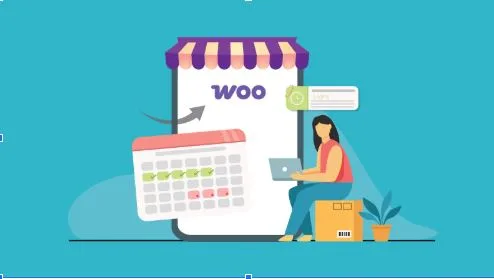Meet Your AI Astrologer: What to Expect from a Virtual Jyotish
Astrology has always been about guidance. For thousands of years, people have consulted Jyotish (the very ancient system of astrology in India) for answers regarding life´s great questions: profession, romance, health, and purpose. But now that AI is disrupting practically every industry, it is no surprise that the cosmos has been impacted as well. We present to you the AI Astrologer, or the Virtual Jyotish, as many are calling it.
This is not about displacing Jyotish in its tradition, but transforming how astrology can be displayed in a digital-first and instant gratification world. Whether you are a die-hard believer, a sceptic with an open mind, or land somewhere in the middle, AI astrology is currently transforming the experience in which we engage with our stars. So what can one expect when they meet their virtual Jyotish? Let us break it down.
Blending the Ancient with the Algorithm
Jyotish is fundamentally a computation — planetary positions, birth charts, transits, and dasha cycles. These are intensely mathematical computations, and astrologers have done furious math by hand for years before offering any interpretation.
But now we embrace AI, a mathematical language and process that allows for precise calculations on a scale we have never seen before. What once took hours of preparation can now happen in seconds. An AI astrologer clicks the button, and a birth chart is generated, planetary strengths analysed, predictions made, in an instant, with a shocking degree of accuracy.
What we see at the end is an intricate web of tradition woven with technology. Where the human astrologer relied on intuition and experience, AI allows for precision, scale, and accessibility.
Why People Are Embracing AI Jyotish
You may ask: why would someone trust an algorithm to tell them about their personal destiny? Here are some reasons a virtual Jyotish is more convenient:
- Real-Time Response: There is no waiting weeks for an appointment; your answers are available instantly when you ask.
- Non-Judgmental Care: Some people do not share their personal secrets with human astrologers. A virtual Jyotish provides total privacy, with zero judgments.
- Low-cost and Scalable: Most AI astrology apps are free or low-cost; Jyotish is available to everyone, not just those who can afford private consultations.
- Data-based Reality: AI algorithms depend on patterns. By evaluating thousands of charts and correlating them with real-world outcomes, AI astrologers can help improve their interpretations in ways not possible for a single person.
- Specific Experience: An AI Jyotish provides a real-time reading unique to your birth date, time, and place. It certainly is more than a generic horoscope.
AI Astrologer Session
So, what is it like to meet with a virtual Jyotish? Here is a description of the process step by step.
Input Birth Information: You enter your birthday, time, and location. Some apps can sync with location services to increase accuracy.
Chart Creation: In seconds, your kundli (birth chart) appears with your ascendant, planetary combinations, houses, and aspects.
Explanations: This is where AI excels. The AI describes the meaning of numbers and symbols by explaining the meaning, strengths, difficulties, and upcoming trends. The AI analyses information and gives you usable communication.
Targeted Questions: Do you want to know about career growth in the next two years? Or wanting some clarity about when to consider marriage? AI Jyotish can narrow down predictions to your specific questions.
Suggestions: Some even provide suggestions or remedies: lifestyle changes, meditation practices, gemstone suggestions, often based on traditional Jyotish, not necessarily pure AI.
Benefits and Drawbacks of AI Astrology
As with any new technology, AI Jyotish has its benefits and drawbacks.
Benefits
- Speed & Efficiency: Charts and predictions created in seconds.
- Consistency: No attitude or emotions; you can count on every reading to be consistent.
- Available Whenever: 2 a.m. or while you’re on a coffee break, there when you need it.
- Scalability: Millions of people can receive guidance all at one time – human astrologers cannot come close to that.
Drawbacks
- Lack of Empathy: AI can explain, it cannot feel. AI can deliver an ample degree of reassurance, but it doesn’t replace the human touch.
- Over-Reliance on Data: Life is generally unpredictable and different; not everything turns out as predictable as the patterns we use to explain it.
- Remedies Can be Superficial: While AI can make recommendations for practices, it cannot offer the depth of culture, who lived wisdom of traditional Jyotish.
- Potential Extreme Personalization: AI can be problematic in that it can sometimes respond to you, mirroring back what you want to hear rather than what you need to hear.
Applications in the Real World: How Virtual Jyotish Is Used
AI astrologers are no longer merely a novelty; they have subtly crept into people’s daily arsenal for making decisions. What used to seem like a futuristic experiment is now included in everyday decisions, ranging from minor to major.
Before setting up interviews, starting projects, or even negotiating pay, some professionals use their AI Jyotish as a sort of cosmic career advisor, examining planetary alignments. Before making significant commitments, couples frequently use it as a trusted counsellor to get relationship insights and compatibility assessments. In terms of money, a lot of individuals use AI astrology apps to determine the “right” times to make investments, buy real estate, or start a business.
- Selecting a Career: Adults and students will consider advantageous times to schedule tests, promotions, and career moves.
- Compatibility: Before deciding on a romantic relationship, couples can check their compatibility scores with the AI Jyotish.
- Good Investments: When making significant purchases or business decisions, investors prefer to look for auspicious dates.
- Wellness: Some people like to schedule their yoga, meditation, or spiritual activities around the cycles of the planetary farm.
- Consider this more of a “cosmic consultant” who can assist someone in making subtle decisions before significant life events than a “fortune teller.”
Scepticism and Trust Issues
Of course, not everyone is completely convinced. The intuition, empathy, and spiritual sensitivity of a person who has honed their craft through years of consistent sadhana, according to traditional astrologers, will never be replicated by AI. Astrology is more art than science, according to some practitioners, and art cannot be replicated by algorithms.
Meanwhile, sceptics of astrology itself dismiss all astrology, including both AI and human astrologers, as relying on some aspect of coincidence or confirmation bias. They consider AI astrology a tech company repackaging an old tradition to sell more products.
This tension in who believes and who does not is simply part of the dynamic of AI Jyotish, when you think of the fact that AI Jyotish is both ancient and futuristic at the same time.
The Future of AI Astrologers
We are just at the groundbreaking stage of the virtual Jyotish journey. Here is a list of possible next steps:
- Hyper-Personalised Apps: AI astrologers embedded in wearable devices that are bonded with your health and lifestyle data.
- AR Consultations: You could simply point your phone at the night sky or your horoscope and openly see how the movement of the planets and astrological energies is affecting your chart in real time!
- Voice-activated AI Jyotish: Interactive chatbots that talk like a clever astrologer that weaves narratives and storytelling into astrological predictions.
Collective Forecasting: AI comparing thousands of charts at once to predict geopolitics or elections, markets, and shifts in cultural realities
With continued developments in AI, it may soon be feasible to build machines that “reflect empathy,” providing emotional support and reassurance in relation to forecasts, while at the same time eliciting motivational triggers alongside predictions. We may very well be at a point where the demarcation line between AI and human astrologer will become increasingly indistinct.
Some Tips for Making the Most of a Virtual Jyotish
If you want to try your hand at AI astrology, here are just some tips that will help provide a good experience:
- Choose Reputable Applications: Use trusted applications that explain how they use your data.
- Ask Specific Questions: Specificity brings specificity of answer.
- Treat It As A Guide, Not Gospel: Treat AI forecasts as guidance, not absolute predictions.
- Use Human and AI: Do not let the brilliance of human Jyotish escape you, but use AI for an immediate answer.
Be Cautious of Your Privacy: Not every site will handle your data respectfully, so be cautious at every step of revealing your personal information while exploring Jyotish.
The Jyotish Is the Future
Astrology has always been recognizing patterns in the cosmos and their functions in human life. From palm leaves to calculations made by hand, to – now – AI based apps, the purpose to understanding every day’s uncertainty remains the same.
AI astrologers will not *replace* traditional Jyotish but will increase accessibility to many more users. More people will be able to access their birth charts and feel planetary influences and consider their story no matter where they are, how much money they have available to spend or the stigma attached to it.




